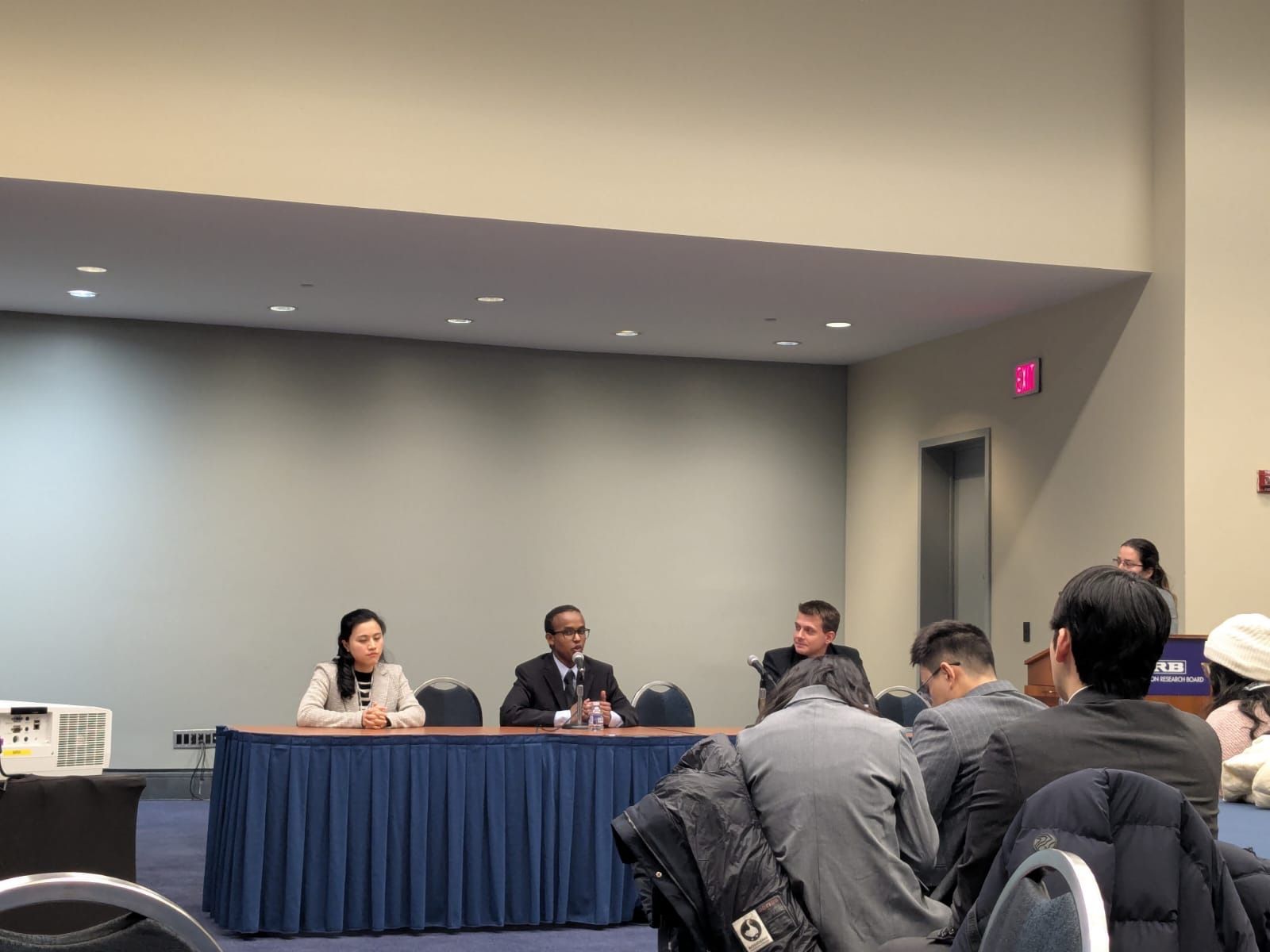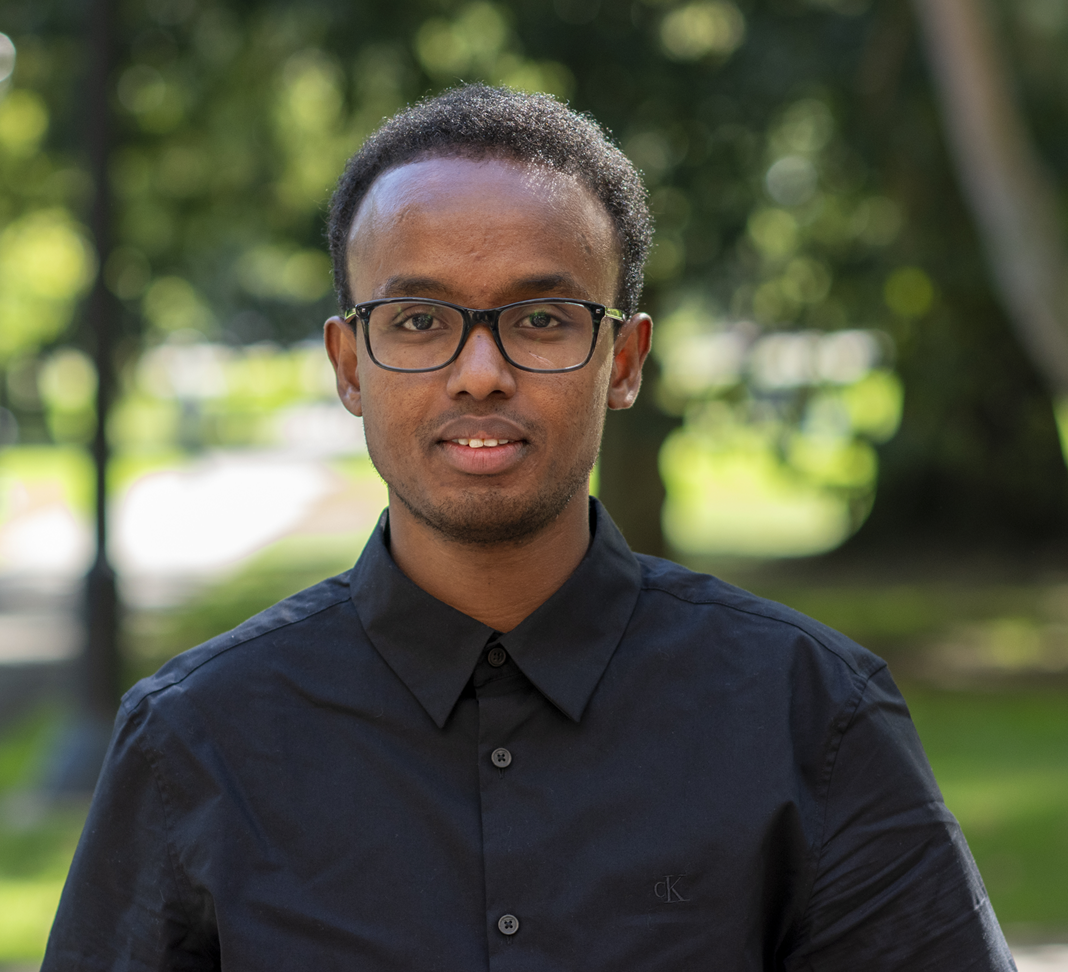About me
I am an advanced mobility engineer at HNTB Corporation based in Columbus, Ohio. My work focuses on electric vehicle deployment and intelligent transportation systems and connected/automated vehicle systems. I am currently building geospatial computational tools to determine the number of charging stations required to cerfity alternative fuel corridors in the states of Oklahoma and Indiana as fully built out based on multiple scenarios under the National Electric Vehicle Infrastructure Formula Program. In addition, I am developing Connected Construction Work Zone tool to support intelligent transportation systems planning in Ohio
You can find my CV here.

I presented findings from my doctoral research in equitable transition to electric vehicles at the 2025 Transportation Research Board Annual Meeting in Washington, DC.
I received my PhD in Geography specializing in sustainable transportation and energy systems from The Ohio State University in August, 2025. I also hold a master's degree in Transportation Engineering from the University of Seoul, South Korea.
My dissertation focused on the sustainability implications of the energy transition from an interdisciplinary perspective. Sustainability science often trancends disciplinary boundaries. Given that electric vehicle transition is a complex process that involves not only transportation system but also energy infrastructure and climate change, I embraced an interdisciplinary approach to integrate multiple fields of study including transportation science, economic philosophy, econometrics, and complexity science in my dissertation project. I drew on semi-structured qualitative interviews, quantitative surveys, and agent-based modeling approaches to conceptualize, measure and model sustainable transition to electric vehicles in Columbus, Ohio (USA).
My work broadly contributes to understanding the social dimension of sustainability to promote adequate access to affordable energy for electric vehicles in a car-dependent society and the environmental dimension of sustainability to reduce greenhouse gas emissions from the transportation sector. My doctoral research particularly addressed the National Academies-identified Grand Challenges and Opportunities for the Twenty-first Century, including (1) curbing climate change while also adapting to its impacts, and (2) developing efficient, healthy, and sustainable cities and communities. My goal is to apply my findings to practice, sustainability education, and community outreach initiatives.
Apart from my dissertation project, I studied sustainable transportation and urban development in the US context. I published on the economic impacts of bicycle infrastructure 11 US cities in the Journal of Transport Geography. Prior to joining The Ohio State University as a PhD student, I studied how Asian cities are different from North American and European contexts in an era of knowledge-based innovation and services in post-industrial cities at the University of Seoul in South Korea. I also worked with research scholars at the Marron Institute of Urban Management at New York University to develop a database with over 500 transit projects from more than 40 countries to understand the drivers of transit infrastructure costs on a global scale to give American cities a sustainable alternative to a future in thrall to gasoline vehicle use.
News
| 11/17/2025 | First dissertation paper with Jeffrey M. Bielicki , Jeffrey Jacquet and my PhD advisor Huyen Le "Just transition to electric vehicles in disadvantaged communities: Integrating transportation, energy, environmental, and climate justice" was published in Energy Research & Social Science! |
| 8/19/2025 | I successfully defended my PhD dissertation on the Just Transition to Electric Vehicles in Columbus, Ohio! |
| 2/25/2025 | My paper with Huyen Le "Impacts of bicycle facilities on residential property values in 11 US cities" was published in the Journal of Transport Geography! |
